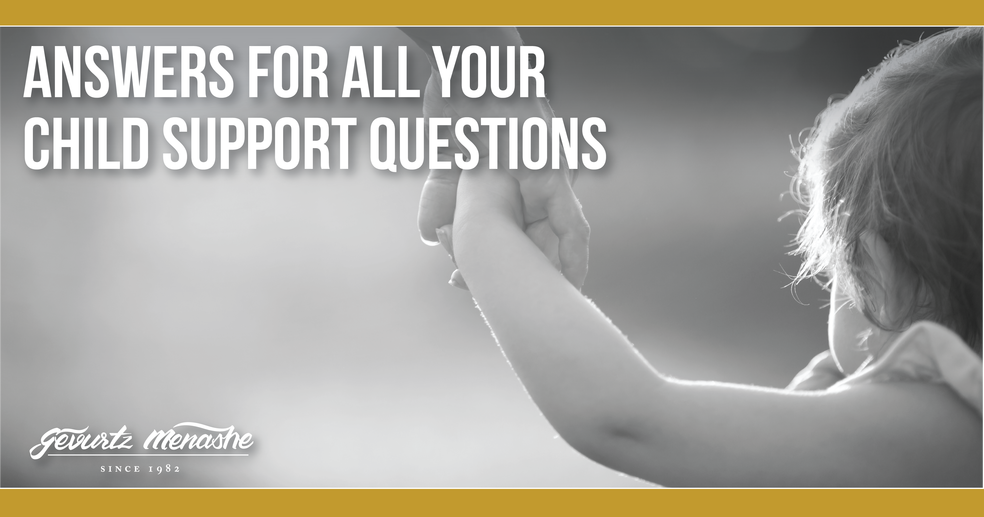Common Questions: Understanding Child Support In OR & WA

During a divorce, we understand that navigating the child support system can be difficult. And because state laws vary, your financial support may look different, depending on where you live. Each state in the U.S. is required by federal law to establish guidelines that are used to calculate child support due from parents based primarily on their income and expenses. Here are a few common questions we are often asked relating to child support in Oregon & Washington.
How Does Child Support Work In Oregon & Washington?
Child support is typically ordered in situations where a child’s parents are not living together. The goal of child support is to make sure children get the care and basic necessities met without the financial burden falling on just one parent.A common exception is for 18- to 21-year-old children who are attending school. Under certain circumstances, Oregon courts may order either parent or both parents to pay child support directly to the child in these situations. In Washington, the court can also order child support beyond high school (post-secondary education support).
What Does Child Support Cover?
Child support is designed to cover the costs associated with raising a child, including food, clothing, shelter, medical care, and more.Oregon’s guidelines for determining child support are based on an “income shares model,” which means the child benefits from the incomes of both parents to the same extent he or she would benefit if the parents were together. Washington has a similar model in that it considers the economic resources of both parents but is based on a “per child” cost and includes two classifications for the support amount based on the age(s) of the children, i.e. ages 0-11 and 12-18.
If you’re a single parent with custody of your child, you may be entitled to receive child support payments to help you raise and provide for your child. Even if the other parent is living in a different state, you can apply for services in Oregon.
How Do I File for Child Support?
You can apply for child support services through the Oregon Department of Justice’s Child Support Program either by contacting your local child support office or by filling out an application form. In Washington, you can contact the Washington State Department of Social and Health Services for assistance with child support matters.If your situation is complicated, the family law attorneys at Gevurtz Menashe can help guide you through this process.
How Do I Pay Child Support?
The most common way to pay child support in Oregon is by payroll deduction -- your employer withholds the determined amount from your paycheck and sends it to the Oregon Child Support Program. If you’re self-employed or live overseas, payroll deduction may not be an option for you, so there are other ways to pay, including via cash, check, credit/debit card, and electronic payment.In Washington, the options for payment are very similar to those in Oregon.
How Is Child Support Calculated?
The Oregon Department of Justice uses a set of guidelines to determine how much child support a parent must pay. The goal is for both parents to share the cost of raising their child in proportion to their income. In addition to income, the court will consider factors like:- Health insurance costs
- How much time each parent spends with the child
- Work-related daycare costs
- Spousal support
- Union dues
Child support can be modified at any time in Washington. Some of the reasons to consider seeking a modification include:
- You or the other parent have changed jobs
- Your child’s daycare or medical costs have changed
- You’ve had another child since your child support order was created
What Happens if Someone Doesn’t Pay?
The consequences of not paying child support can be severe. If you don’t pay the child support you owe on time, the Office of Child Support Enforcement can:- Take your federal and state income tax refunds as compensation
- Put a lien on your property
- Garnish your wages or other income
- Suspend your driver’s license and/or passport
- Report your name to a creditor or debt collection agency
Similarly, if you are owed child support and you’re not receiving payments, a family law attorney can help you take the right steps to get what you need to take care of your child.
We Can Help
We understand the child support guidelines can be complicated. If you have questions about the process, or would like to review your current child support situation, we’re here to help.The family law attorneys at Gevurtz Menashe can help you understand your rights, weigh your options, and get a fair outcome.
Call our Portland office at 503-227-1515, our Vancouver office at 360-823-0410, or contact us online today.
